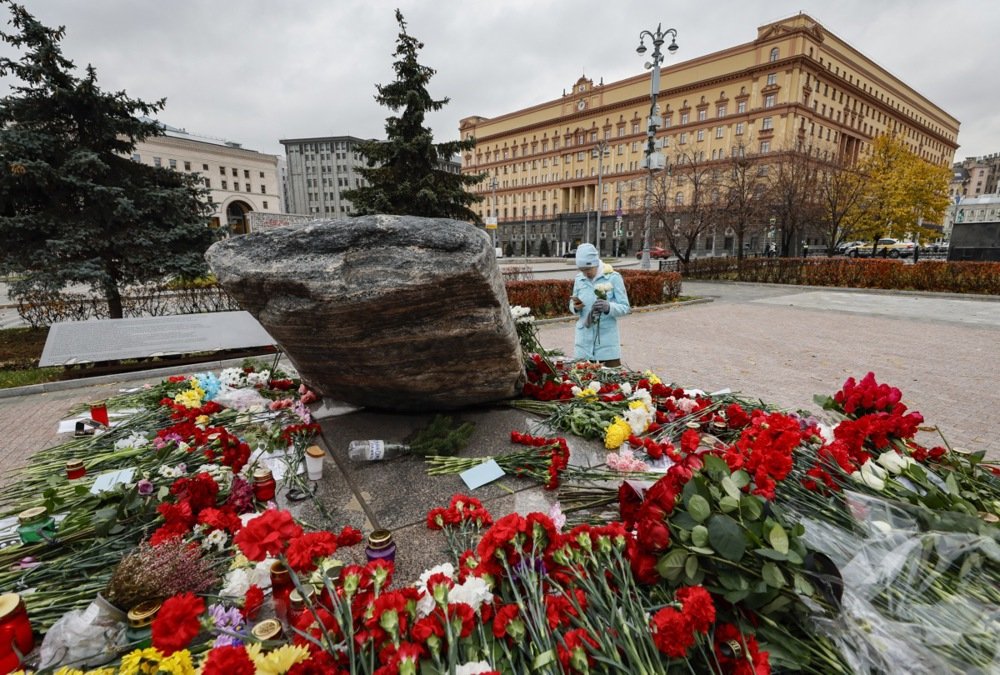
A woman pays her respects to those killed during Soviet era at the Solovetsky Stone in Moscow’s Lubyanka Square, 30 October 2024. Photo: EPA-EFE / YURI KOCHETKOV
The chairman of the Presidential Council for Civil Society and Human Rights, Valery Fadeyev, called for Russia’s most important monument to the victims of Soviet-era political repression to be moved in an interview with state-affiliated news outlet RBC on Tuesday.
Fadeyev said the Solovetsky Stone, a slab of granite transported from the site of the Soviet government’s first prison camp in Russia’s far north that was transported to Moscow in 1990, should be removed from outside the Lubyanka Building, the former headquarters of the KGB, on the grounds that people no longer go there to honour the memory of those who were unjustly executed by the Soviet authorities, “but as a political protest”.
Fadeyev said that those wishing to honour the victims of Soviet-era repression should go to the Wall of Grief memorial instead, calling the Solovetsky Stone “a slap in the face to the people currently working in the Lubyanka”, which is still used today by the KGB’s successor agency, the Federal Security Service (FSB).
A member of the ruling United Russia party, Fadeyev also expressed his disapproval of the Last Address project, which installs memorial plaques outside the homes of individual victims of Soviet-era repression, and suggested that the plaques be removed.
“This obsessive provocation on a daily basis, as if to say, you killed people, this country has no future. … It’s not true,” Fadeyev said, pointing to the existence of Moscow’s Wall of Grief memorial, the Day of Remembrance of the Victims of Political Repression, and the fact that Soviet crimes were covered in Russia’s history textbooks.
Last month, Moscow’s Gulag History Museum was forced to shut its doors in what appeared to be another Kremlin attempt to cement its grip on historical memory in Russia. The museum may have angered the Kremlin by holding an event to commemorate victims of Stalin’s Great Terror after the authorities had refused permission for it to be held at the Solovetsky Stone, citing Covid-19 restrictions.
